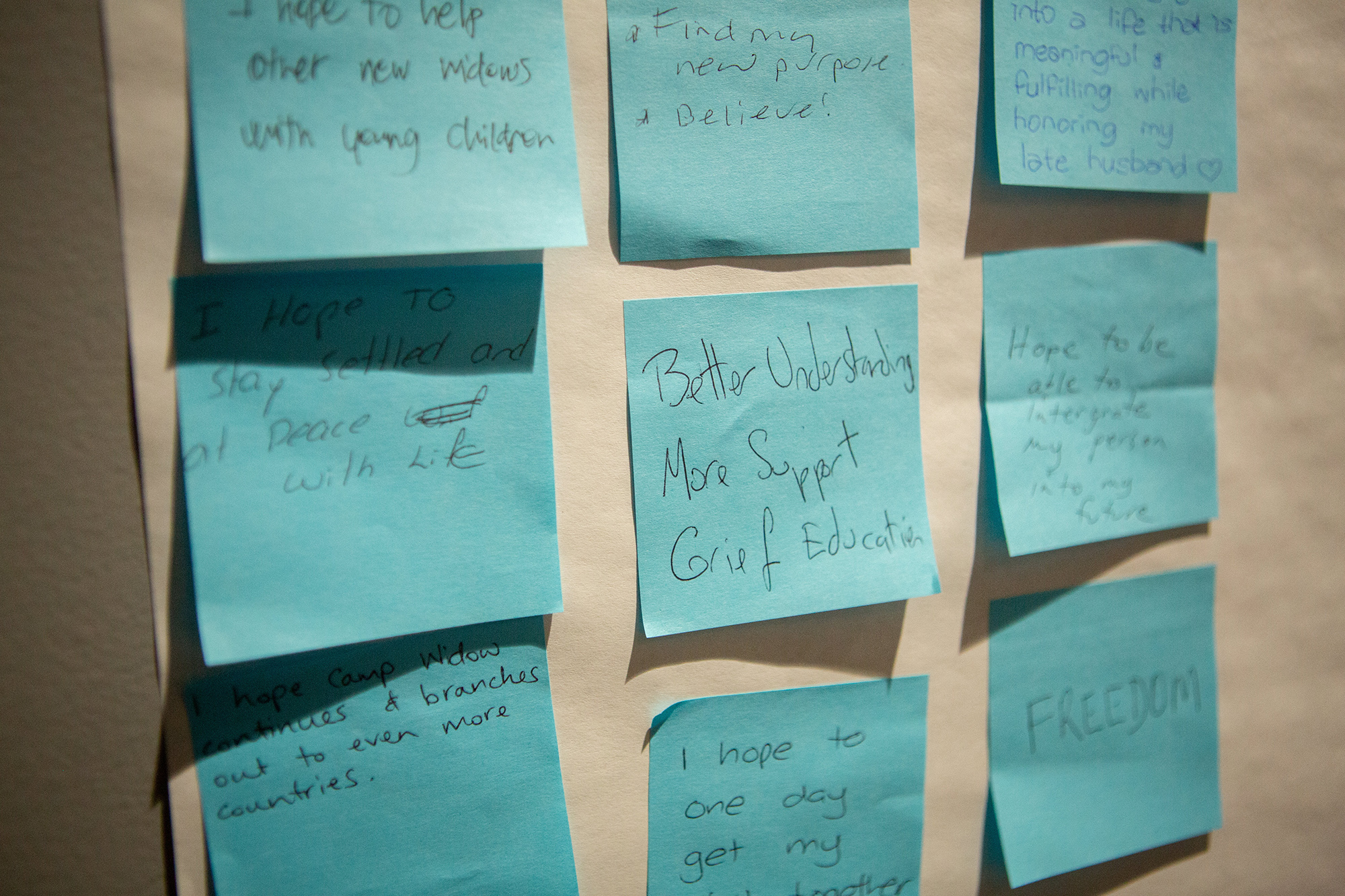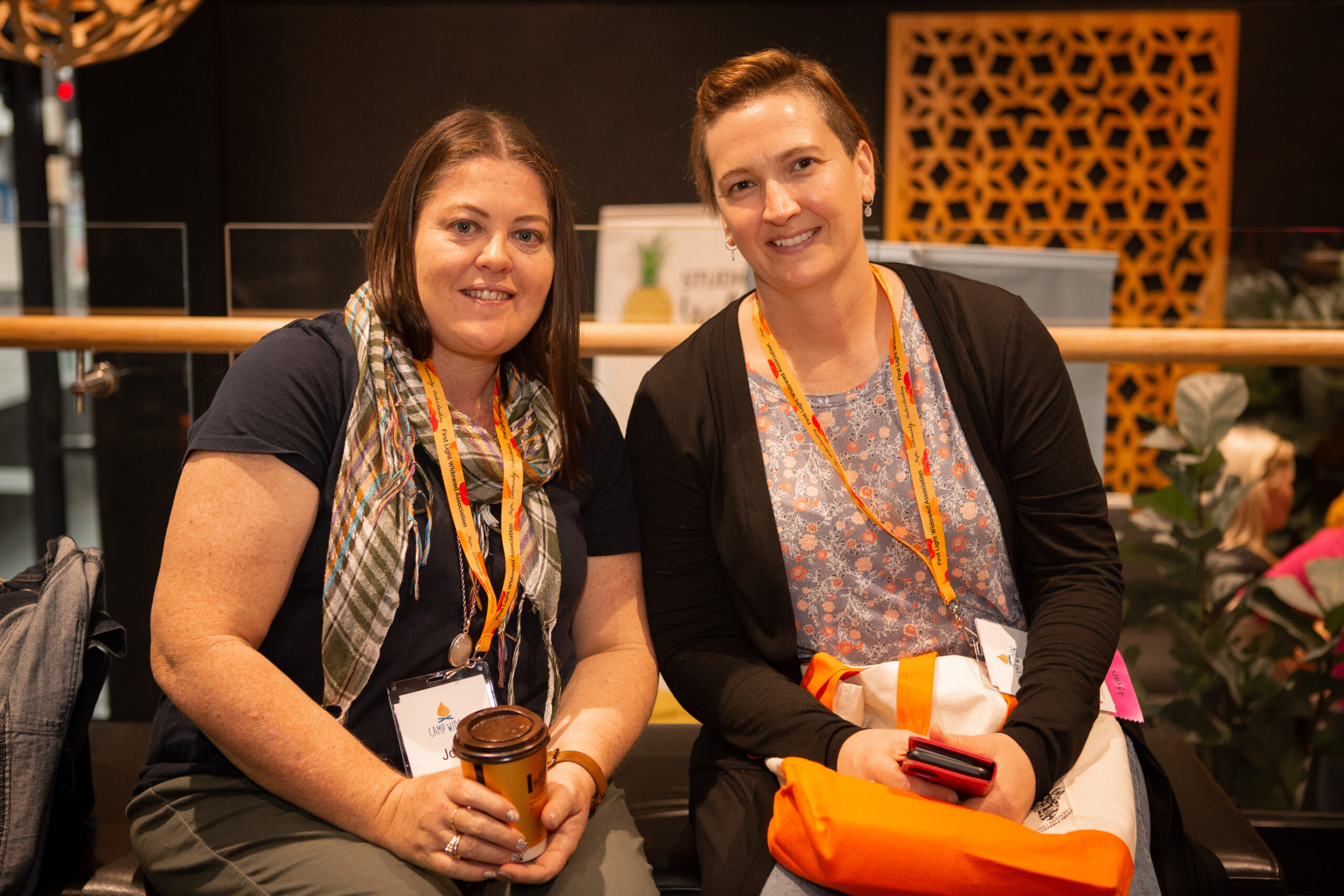Newly widowed – what to expect
Where to begin
You are experiencing a major life event you could never prepare for. Grief turns your world inside out and back to front. Everything that once made sense to you no longer does. It can be an incredibly confusing, painful and lonely time.
You are doing the absolute best that you can right now, and that is more than okay.
This guide has been written by widowed people who have walked this path and drawn from their personal experiences. We hope that this information may be helpful to you at this time.
Understanding grief
- The stages of grief are not linear. They can repeat, occur in any order, and even occur simultaneously.
- Grief can be messy and confusing. You may question or doubt yourself, you might feel very forgetful and absent minded. Be gentle with yourself, it can take a long time for your brain to process your loss and get used to this new reality.
- Don't feel guilty! If you feel fine within the first few days or weeks, it is most likely as your brain is still in shock. These moments of reprieve are important to help you catch your breath, feel at peace and manage the initial grief process overall.
- Try to be thankful for the good days. It's not that you don't care; it's a natural part of the grief process as your mind gets used to the big changes. The grief will most likely keep coming back, until enough time has passed, so allow yourself the moments of reprieve. It's also helpful to know that one day, things will most likely feel more manageable. You'll start to feel better. It just takes time.
- Don't judge yourself for feeling like you're going crazy or for acting out of character. Your mind is adapting to a massive change and trauma. It will settle over time.
- There is no timeline to grief. Everyone is on their own pathway, respect yours.

Dealing with others
- Be prepared for people to say hurtful things, even unintentionally. Death and grief can make people uncomfortable, and they don't always realise the impact an unthoughtful or clumsy word could have.
- When people do say hurtful things, try not to hold on to the words that are unhelpful or misguided.
- Ask loved ones to read up on how to support someone who is widowed.
- Don't feel pressure to 'move on', or do what others think you should do. Listen to your heart. Everyone's timeline is different and there is no rule book when it comes to grief.
- Accept help when you need it. If you're finding it difficult to ask for help, consider asking someone close to you to help coordinate offers of assistance, such as the upkeep on your house or garden, taking your children to their extra-curricular activities, providing meals, etc.
- Remember that those who are offering advice are likely doing so because they care. They don't necessarily understand this advice isn't always helpful at this time.
Making decisions
- If you can avoid it, it might be helpful not to make any major life-changing decisions within the first 6-12 months. This can include changes such as: moving, changing jobs or giving away treasured possessions that you might later regret losing. While our brains are in shock and processing the full depth of our grief, we can feel impulsive or struggle to see the bigger picture.
- If items and their associated memories are making it harder to cope, consider storing these away safely or placing them out of sight until you are ready.
- It's also absolutely fine to temporarily stay somewhere else, if you need the support and can't be in the space you shared with your partner. Everyone's journey through grief is different. This might help you avoid making any big, permanent decisions while you're in the initial grief period.
- It's alright to make decisions based on your needs, even if your loved one may not have agreed. They would want you to be okay. It can be hard to adjust to making decisions for ourselves when we're used to collaborating with our spouse. If you have a trustworthy family member or friend they might be a helpful sounding board.

Taking care of yourself
- Write things down, use sticky notes, and set alarms to help with forgetfulness. It's completely normal and will pass in time.
- Try to practice self-care every day in a way that is meaningful to you. This may be as simple as showering and brushing your teeth every day, or moving your body by going for a gentle walk.
- It's alright to feel like you don't want to "move on". For now, just getting through each day is enough.
- Remember that you won't always feel the way you do today. In time, you will feel ready to take steps to rebuild your life, and will have the capacity to feel joy and peace again.
- Don't be afraid to reach out for help and support, whether that's connecting with our community of widowed people, accessing resources and information, accepting the help of friends and family, or talking to a professional to help sort through your thoughts and feelings.
You're not doing it 'wrong'
- Grieving the loss of a spouse is a unique and individual process. Everyone's experience is different.
- There's no right or wrong way to grieve, and it's alright to take the time you need to heal.
- When your grief becomes overwhelming, focus on getting through the next hour. Fill that hour, then you can think about the one after that. The hours will turn into days and, in time, your grief will change.
- Remember that you don't have to let go of the love you shared with your spouse, and that you will learn to carry it with you in a positive way.
Coping with the funeral
- You may feel like you're in a fog when making preparations.
- Accept help when you need it.
- Remember the purpose of funerals are for those left behind to say goodbye, in whatever way you need. If you're unsure of your loved ones wishes, then chose the option that will be meaningful for you and those close to you.
- Know that you are doing the best that you can in these circumstances.
- Be gentle with yourself during this time.
Want information in a physical resource pack ?
Request a free Newly Widowed Pack
It can be hard to retain the information that we read when we’re grieving. However, it’s been shown that having a physical copy of the information can help, so we offer Newly Widowed Packs with printed summaries of information and resources for newly widowed people.
You can request for a pack to be mailed out to you, free of charge below. You can also choose to donate the costs of your pack; to help us continue to provide this resource to other newly widowed people.
Jump to a section
Hope, community, understanding
Join our community for access to information, resources, events, and a network of widowed people for peer support. Joining is free, with options to become a financial supporter to keep us running and helping others.
